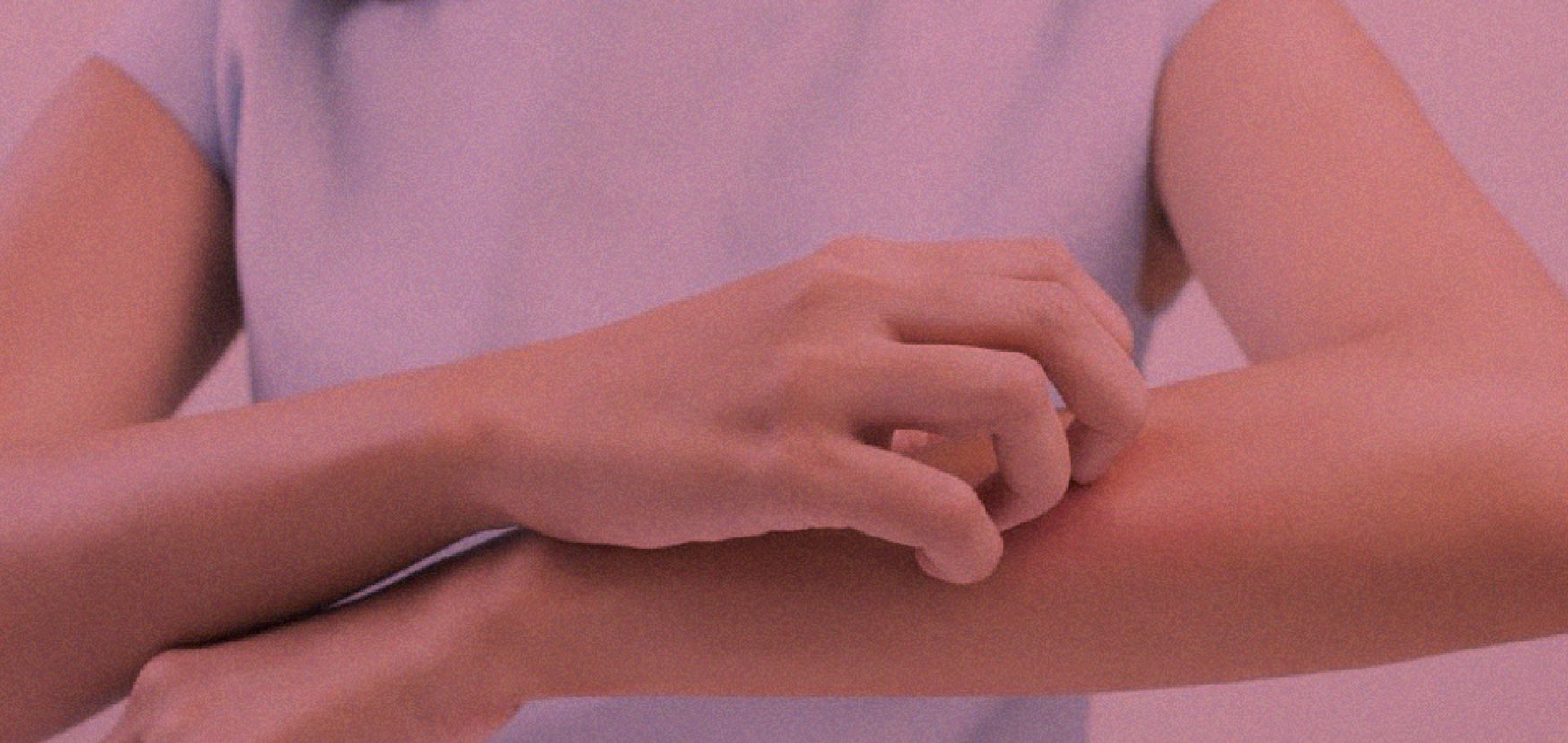The current crisis with the imminent danger of coronavirus is putting a spotlight on a major disease, COVID19. But have you ever stopped to think that all the other illnesses and diagnoses are still happening?
For example, you, a 3000days follower, probably have chronic hives or are a close friend/family member who does. Chronic diseases are those with slow progression and long duration, which we often carry throughout our lives. They can be silent or symptomatic, compromising quality of life. It's been like this for us, living with hives.
Therefore, in the midst of this pandemic, our chronic pathology continues to be part of us and we cannot ignore this. On the contrary, We must remain calm and our treatment in a manner guided by our specialist doctor.
In recent days, we have received many comments and questions regarding the fear of having a the disease worsens precisely during this time. After all, it is an extremely sensitive time to think about going to hospitals or needing doctors. In our latest content, we even talk about telemedicine, and how you can stay in touch with your doctor during this time.
Treatment of chronic spontaneous urticaria aims to completely control symptoms and you can evaluate with your doctor which steps best fit your reality and history as a patient. Assessing all of this is very important, mainly because we cannot ignore a worsening of urticaria in times like this and also in others.
This moment we are living in is very unique and we are on edge in many ways. Yes, it could happen uncontrolled urticaria symptoms in times like the ones we are living in right now.
To help us understand this issue more closely and help us with this fear of worsening symptoms, we called the Dr. Gleison Duarte, dermatologist, for a conversation.
3000days: Nice Doctor, how are you? It is a pleasure to welcome you here at 3000dias to address such a sensitive topic that has worried many at this time. The entire population, even the healthiest, is subject to being affected by COVID-19. There is a fear present on this topic across the world. What can we say then about those who already live their daily lives with a chronic illness, such as CSU - the fears are even greater. What advice do you have for this patient who has hives and is unsure about their symptoms worsening during this period?
Dr. Gleison: All good! I am an eternal optimist. Although the season brings us immeasurable challenges, we are relearning to value the essentials more. Many people have suffered from anxiety, obsession with cleanliness, among other manifestations, and in fact, those who already live with chronic illnesses, such as urticaria, seem to feel more fragile. To begin with, UCE, in itself, does not increase the risk of respiratory infections, being identical to that of the general population.
Medications used for control (antihistamines), even in high doses, are also not associated. Patients using omalizumab, despite being immunobiological, should not fear additional risks, as this is not considered an immunosuppressive drug. Finally, cyclosporine, which is an immunosuppressive drug, requires additional care in relation to the work environment and the risk of infection.
We also do not know whether patients using cyclosporine could develop more severe forms of COVID-19. Therefore, it is not necessarily because you have a chronic disease that we will label you as a risk group. Most importantly, what medication is part of the treatment and what comorbidities (other diseases) the person has.
3000days: Here at 3000dias we have many followers who are still not experiencing control over their symptoms, and as you know, they often have to resort to emergency care units in the case of stronger symptom attacks. For the doctor, Which cases should be considered urgent to seek a hospital, knowing that it is an environment that most people have felt unsafe being in during this pandemic?
Dr. Gleison: Every CSU sufferer has at some point experienced frequent bouts of hives all over their body. An exacerbation of the disease can occur, even in people previously controlled. In the absence of symptoms, such as fever, shortness of breath, chest pain, incessant dry cough, complete loss of taste and/or smell, the patient should try their best to treat their crisis at home.
If there are previously listed symptoms, you should consider going to the emergency room. Another situation is intense attacks of angioedema, particularly affecting the mouth or lips. In general, for exacerbations of urticaria only, if possible, it is worth asking for guidance from the attending physician via telemedicine consultation – increasingly adopted by dermatologists and allergists -, or even in person.
3000days: In general terms, what measures and precautions can I take as a hives patient during this period?
Dr. Gleison: Patients with CSU using cyclosporine should discuss the risks and benefits of using the drug during the pandemic with their doctor. When using this drug, you should discuss the readjustment of the work environment, such as home office, when possible, or provision of PPE, alcohol gel, regular cleaning of the environment, when not possible, avoiding public service as much as possible.
However, for other patients with CSU, the treatment does not bring additional risks, and therefore, does not require respiratory and hand hygiene measures to be carried out other than those already advised to the population. Like anyone with a chronic illness who is experiencing anxiety, they can also resort to psychotherapeutic support, which has even been carried out virtually. Non-pharmacological relaxation measures, such as meditation, yoga, physical activity and others, are always welcome for physical and mental health.
In closing with Dr. Gleison's message, we would like to talk about the importance of emotional care in times like now. In fact, for any patient with chronic diseases, and even more so with skin, it is very valuable to take close and attentive care within themselves.
Here at 3000dias we are always exploring content about emotional factors and the impact on those experiencing skin diseases, and since 2018 we have had a special week focused on psychology and mental well-being. Soon, we will begin another journey like this together. While that doesn't happen, you can check out a little of everything we've already talked about this topic here.
*Post sponsored by Novartis BR-10102 | June / 2020




Recent Comments